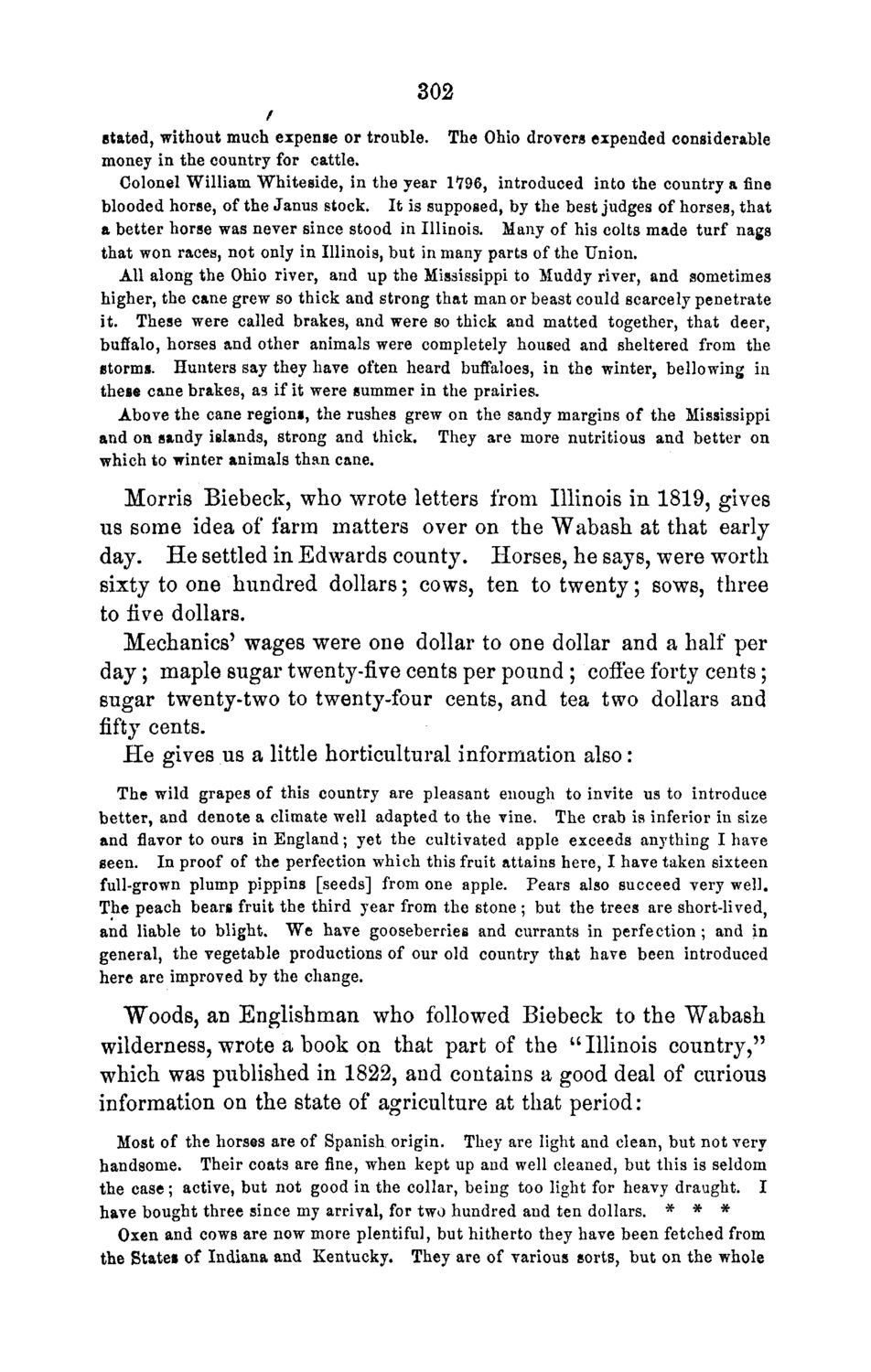| |
| |
Caption: Board of Trustees Minutes - 1868
This is a reduced-resolution page image for fast online browsing.

EXTRACTED TEXT FROM PAGE:
302 f stated, without much expense or trouble. The Ohio drovers expended considerable money in the country for cattle. Colonel William Whiteside, in the year 1*796, introduced into the country a fine blooded horse, of the Janus stock. It is supposed, by the best judges of horses, that a better horse was never since stood in Illinois. Many of his colts made turf nags that won races, not only in Illinois, but in many parts of the Union. All along the Ohio river, and up the Mississippi to Muddy river, and sometimes higher, the cane grew so thick and strong that manor beast could scarcely penetrate it. These were called brakes, and were so thick and matted together, that deer, buffalo, horses and other animals were completely housed and sheltered from the storms. Hunters say they have often heard buffaloes, in the winter, bellowing in these cane brakes, as if it were summer in the prairies. Above the cane regions, the rushes grew on the sandy margins of the Mississippi and on sandy islands, strong and thick. They are more nutritious and better on which to winter animals than cane. Morris Biebeck, who wrote letters from Illinois in 1819, gives us some idea of farm matters over on the Wabash at that early day. He settled in Edwards county. Horses, he says, were worth sixty to one hundred dollars; cows, ten to twenty; sows, three to five dollars. Mechanics' wages were one dollar to one dollar and a half per day; maple sugar twenty-five cents per pound; coffee forty cents; sugar twenty-two to twenty-four cents, and tea two dollars and fifty cents. He gives us a little horticultural information also: The wild grapes of this country are pleasant enough to invite us to introduce better, and denote a climate well adapted to the vine. The crab is inferior in size and flavor to ours in England; yet the cultivated apple exceeds anything I have seen. In proof of the perfection which this fruit attains here, I have taken sixteen full-grown plump pippins [seeds] from one apple. Pears also succeed very well. The peach bears fruit the third year from the stone ; but the trees are short-lived, and liable to blight. We have gooseberries and currants in perfection; and in general, the vegetable productions of our old country that have been introduced here are improved by the change. Woods, an Englishman who followed Biebeck to the Wabash wilderness, wrote a book on that part of the "Illinois country," which was published in 1822, and contains a good deal of curious information on the state of agriculture at that period: Most of the horses are of Spanish origin. They are light and clean, but not very handsome. Their coats are fine, when kept up and well cleaned, but this is seldom the case; active, but not good in the collar, being too light for heavy draught. I have bought three since my arrival, for two hundred and ten dollars. * * * Oxen and cows are now more plentiful, but hitherto they have been fetched from the States of Indiana and Kentucky. They are of various sorts, but on the whole
| |